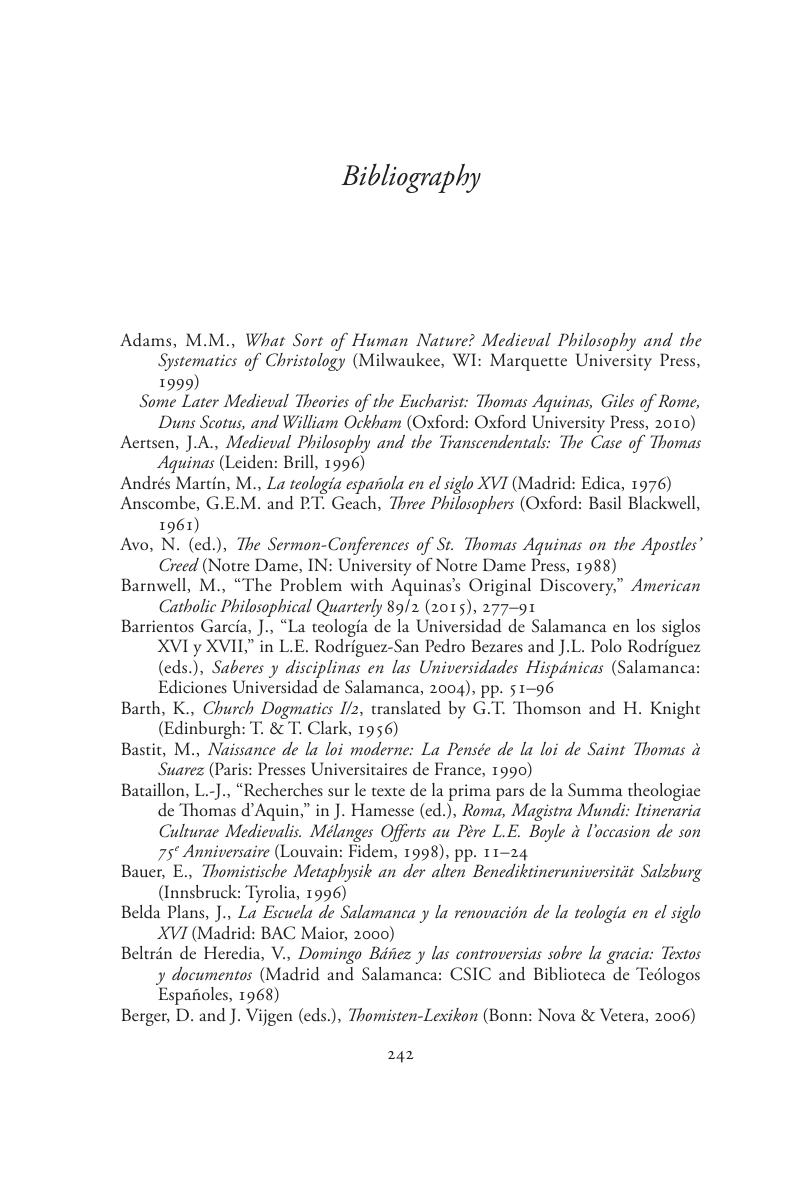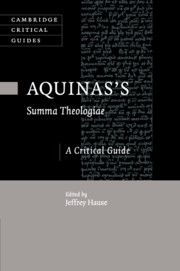Book contents
- Aquinas's Summa Theologiae
- Cambridge Critical Guides
- Aquinas's Summa Theologiae
- Copyright page
- Contents
- Contributors
- Abbreviations
- Introduction
- 1 On What There Is in Aquinas
- 2 Dead Ends, Bad Form: The Positivity of Evil in the Summa Theologiae
- 3 The Summa Theologiae on What God Is Not
- 4 The Trinity
- 5 Aquinas on the Soul: Some Intriguing Conundrums
- 6 Emotion and Desire in the Summa Theologiae
- 7 Aquinas on Moral Progress
- 8 Practical Reason and Normativity
- 9 The Natural Law
- 10 Natural Reason and Supernatural Faith
- 11 The Significance of Christology in the Summa Theologiae
- 12 From Theology to Philosophy: The Changing Status of the Summa Theologiae, 1500–2000
- Bibliography
- Index
- References
Bibliography
Published online by Cambridge University Press: 07 March 2018
- Aquinas's Summa Theologiae
- Cambridge Critical Guides
- Aquinas's Summa Theologiae
- Copyright page
- Contents
- Contributors
- Abbreviations
- Introduction
- 1 On What There Is in Aquinas
- 2 Dead Ends, Bad Form: The Positivity of Evil in the Summa Theologiae
- 3 The Summa Theologiae on What God Is Not
- 4 The Trinity
- 5 Aquinas on the Soul: Some Intriguing Conundrums
- 6 Emotion and Desire in the Summa Theologiae
- 7 Aquinas on Moral Progress
- 8 Practical Reason and Normativity
- 9 The Natural Law
- 10 Natural Reason and Supernatural Faith
- 11 The Significance of Christology in the Summa Theologiae
- 12 From Theology to Philosophy: The Changing Status of the Summa Theologiae, 1500–2000
- Bibliography
- Index
- References
Summary

- Type
- Chapter
- Information
- Aquinas's Summa TheologiaeA Critical Guide, pp. 242 - 260Publisher: Cambridge University PressPrint publication year: 2018

